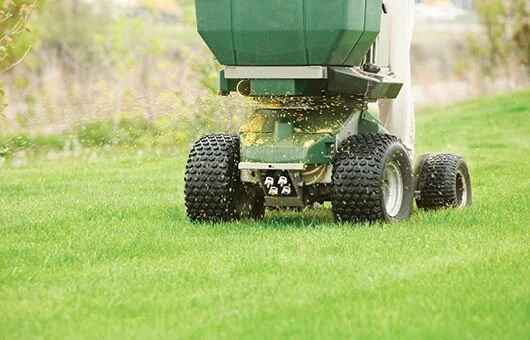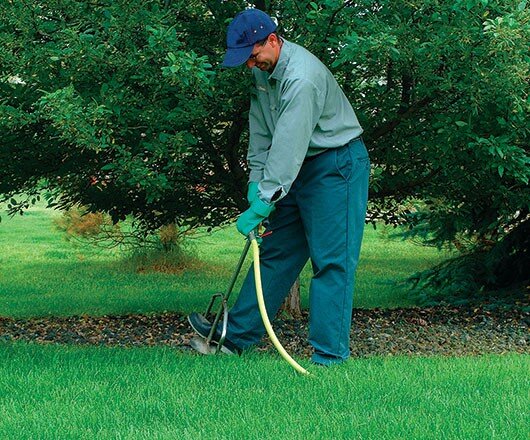Most homeowners have heard at some point that fertilizer can make their lawns look great. What is fertilizer even made of, and what good does it actually do?
Simply put, fertilizer is food for your lawn. When used in the right amounts at the right times, fertilizer can improve the health and appearance of your lawn now and in the future. A thriving lawn is more than just nice to look at. Healthy turf areas can reduce erosion and clean the air. Well-fed lawns also require less water to maintain than those that are stressed.
Whether man-made or organic, lawn fertilizer is made up of three primary ingredients that help your lawn in different ways. Nitrogen promotes top growth and can rapidly green up a dull, undernourished lawn. Phosphorus helps stimulate root development, which is crucial to the long-term health of your turf. Finally, potassium makes your lawn resistant to disease and helps it retain water.
Trees and Shrubs Also Need to Eat!
In addition to your turf areas, ornamentals benefit greatly from fertilization. Trees and shrubs in your lawn spent the past winter surviving on food reserves that they built up in their root systems last fall. Now that those reserves have been depleted, it’s time to provide your landscape plants with a much-needed spring meal.
Fertilizer works by replacing the nutrients that your landscape plants would normally absorb from the rich soil in a forest habitat. Spring is one of the best times of year to fertilize your trees and shrubs. Extra rain and soil moisture are available, making it easier for your landscape plants to absorb nutrients and put them to good use. By fertilizing now and sticking to a regular feeding program throughout the year, you’ll be rewarded with healthier, more beautiful trees and shrubs in your landscape.
Benefits of Biochar
Adding charcoal to your soil may not seem like a great idea. A certain type of charcoal, however, can significantly contribute to your soil's health, helping turfgrass as well as ornamental landscaping. Biochar is a specialized form of charcoal which is absorbent, with an extreme amount of surface area. When added to soil, biochar collects a variety of nutrients, which prevents them from seeping below root level to where they are no longer usable. Biochar stabilizes soil's nutrients, making your lawn and landscape a more plant-friendly environment.



